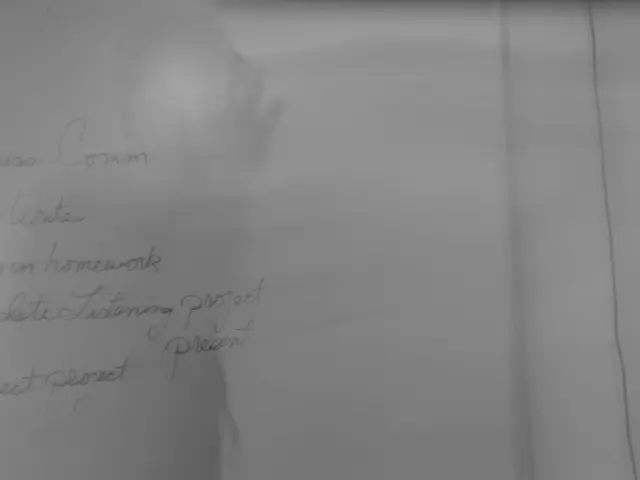Trump Greenlights Deep-Sea Mining Gold Rush, Disregarding Environmental Warnings
Trump endorses deep-sea mining sector via executive order - Trump advocates for the expansion of deep-sea mining operations
Warning: Strong, informal language used throughout for emphasis
You know who thinks he's got the answers? ** Trump, folks. He's gone ahead and signed an executive order that'll kickstart the controversial deep-sea mining industry. And guess what? It's not good news for the environment.*
- Deep-sea mining? Yeah, it's just what it sounds like. They're pulling polymetallic nodules - full of manganese, cobalt, copper, nickel, and other goodies - from the seabed. Sounds simple, right? But here's the catch: those nodules take millions of years to form. And they're a vital part of some little-known but super important deep-sea ecosystems.*
So, imagine digging up your backyard for decades and then finding out it was home to endangered species you didn't even know existed. That's pretty much what we're doing here. These ecosystems are so little-researched, nobody really knows what would happen if we screw it up.
But who needs that stuff, right? We just need those sweet minerals for our electric vehicle batteries. Which isn't necessarily true. Some experts argue that deep-sea mining might not even be necessary for the transition to renewable energy. But hey, Trump's got his eyes on China's influence, so he's pushing for US dominance in this sector.
Now, when it comes to international waters, there's this thing called the United Nations Convention on the Law of the Sea (UNCLOS). It's basically a treaty that sets rules for every country to play nicely in the ocean. The International Seabed Authority (ISA) was created under UNCLOS to manage the seabed in international waters (that's outside of any country's 370 km radius).
Guess who's not a part of that club? Yep, that's right. The USA. And that creates a nice loophole for companies like The Metals Company to apply for permits directly with the US authorities, without going through the usual international regulatory body.
In case you're wondering, the ISA is stuck in negotiations over a possible deep-sea mining regime, and dozens of states are calling for no licenses to be issued until they understand the environmental impacts. But The Metals Company doesn't seem inclined to slow down. They're planning to mine in the Clarion-Clipperton Zone, baby.
So, what does Greenpeace think about all this? Well, they're not happy. They've called Trump a modern-day cowboy, saying he's turning the deep sea into the Wild West. And let's not forget: deep-sea mining still isn't legal. But hey, when has that ever stopped Trump?
Fun Facts:
- Did you know? The entire deep ocean contains about 30 million tons of polymetallic nodules[4].
- Despite its lack of ratification, the US is an observer at the International Seabed Authority[4].
- The US policy regarding deep-sea mining emphasizes rigorous environmental reviews and protecting the ocean[1].
- The Metals Company could potentially face significant delays in obtaining permits due to ongoing controversy and debate about deep-sea mining[4].
[1]: https://www.whitehouse.gov/briefing-room/presidential-actions/2021/04/29/presidential-executive-order-on- America-s-essential-critical-mineral- industries-and-s-supply-chains-2/[2]: https://www.deepseaminingfinance.com/news/the-metals-company- and-deutsche-seetage-sign- collaboration-agreement-to-provide-project-management-drones-and-navigation-equipment-to-the-pacific-usion- project/
[4]: https://www.energy.gov/eere/wind/articles/deep-ocean-wind-mostly-untapped-potential-clean-energy- generation-capability
- Trump has signed an executive order to initiate the contentious deep-sea mining industry, disregarding multiple environmental warnings about its impact on deep-sea ecosystems.
- Deep-sea mining involves the extraction of polymetallic nodules, which are rich in minerals such as manganese, cobalt, copper, nickel, and others, from the seabed.
- The environmental concerns with deep-sea mining are significant, as these nodules take millions of years to form and are a critical part of various little-known deep-sea ecosystems.
- The United Nations Convention on the Law of the Sea (UNCLOS) sets rules for countries to cooperate in using the ocean, and the International Seabed Authority (ISA) was established to manage the seabed in international waters.
- The USA has not ratified UNCLOS, creating a loophole that allows companies like The Metals Company to apply for mining permits directly with US authorities, bypassing the ISA's regulatory process.








